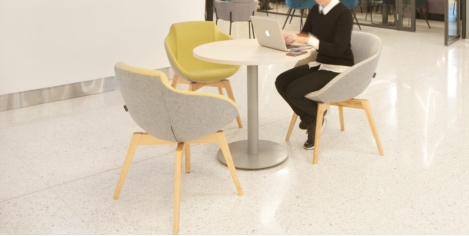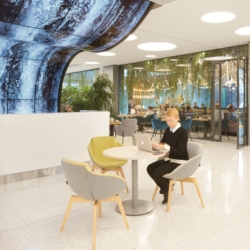To provide the best experiences, we use technologies like cookies to store and/or access device information. Consenting to these technologies will allow us to process data such as browsing behaviour or unique IDs on this site. Not consenting or withdrawing consent, may adversely affect certain features and functions.
The technical storage or access is strictly necessary for the legitimate purpose of enabling the use of a specific service explicitly requested by the subscriber or user, or for the sole purpose of carrying out the transmission of a communication over an electronic communications network.
The technical storage or access is necessary for the legitimate purpose of storing preferences that are not requested by the subscriber or user.
The technical storage or access that is used exclusively for statistical purposes.
The technical storage or access that is used exclusively for anonymous statistical purposes. Without a subpoena, voluntary compliance on the part of your Internet Service Provider, or additional records from a third party, information stored or retrieved for this purpose alone cannot usually be used to identify you.
The technical storage or access is required to create user profiles to send advertising, or to track the user on a website or across several websites for similar marketing purposes.
 Around two thirds of people who can work from home say their employers aren’t planning to provide financial support related to energy costs and almost a quarter of under 35s currently working from home say they would consider coming into the office more due to rising energy prices. These are the key findings of a YouGov poll from Emburse. A sample of 1,015 British employees were asked a range of questions covering hybrid working patterns and employer financial support in light of the cost of living crisis and increasing utility bills. More →
Around two thirds of people who can work from home say their employers aren’t planning to provide financial support related to energy costs and almost a quarter of under 35s currently working from home say they would consider coming into the office more due to rising energy prices. These are the key findings of a YouGov poll from Emburse. A sample of 1,015 British employees were asked a range of questions covering hybrid working patterns and employer financial support in light of the cost of living crisis and increasing utility bills. More →

















 Issue 12 of IN Magazine is in production, but in the meantime
Issue 12 of IN Magazine is in production, but in the meantime 



















July 18, 2022
The future of work is asynchronous
by Adam Dover • Comment, Flexible working, Technology
More →